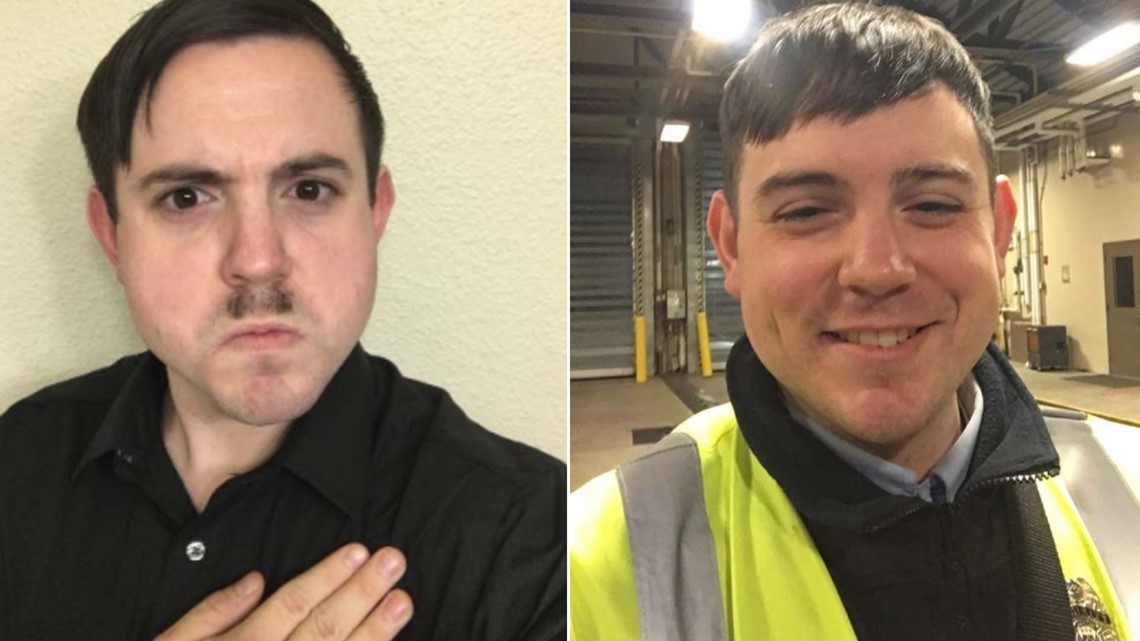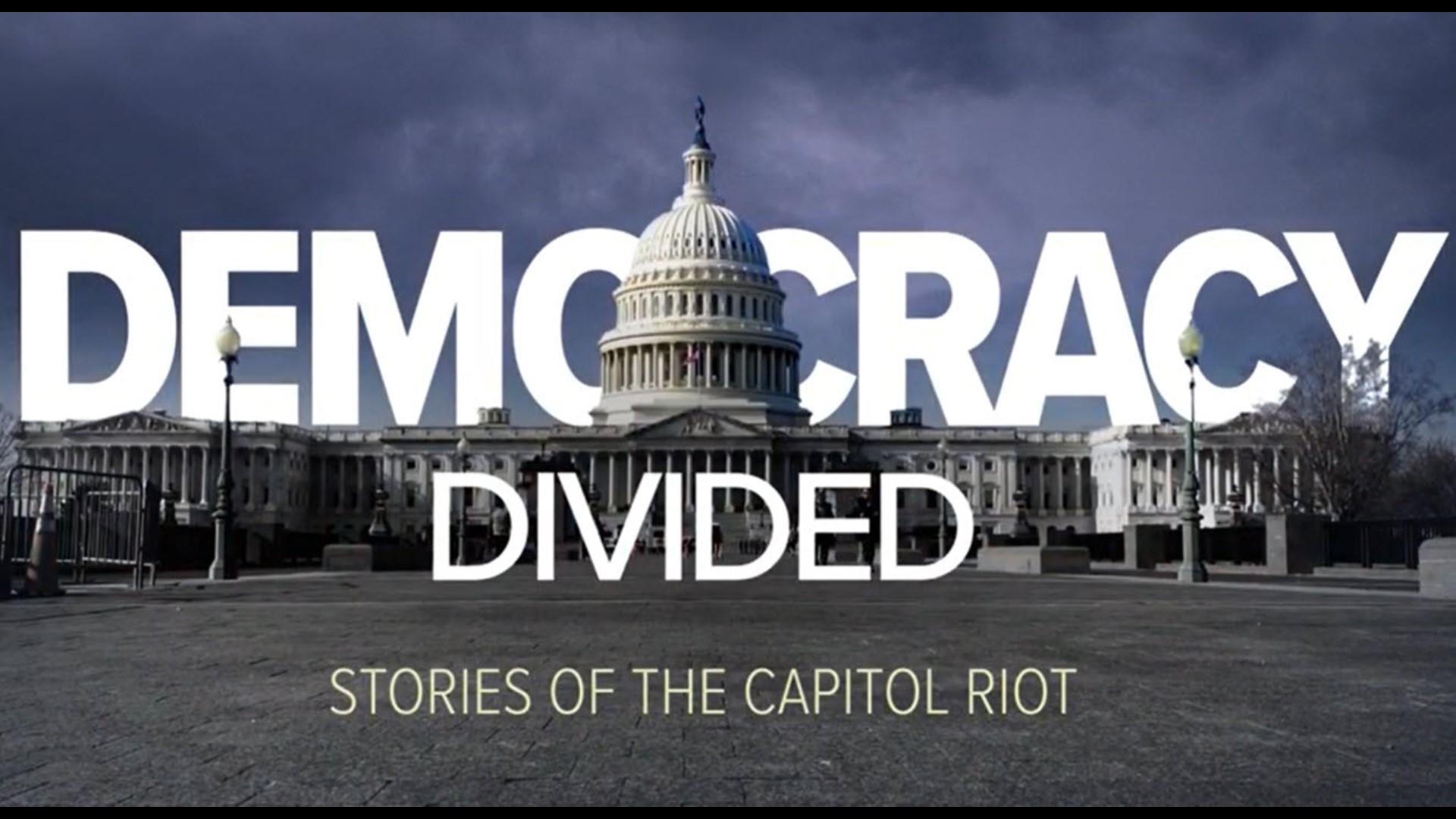WASHINGTON — Jurors deliberated for more than five hours Friday before delivering a guilty verdict on all counts in the trial of a former Army reservist who entered the Capitol as part of the pro-Trump mob on Jan. 6.
After three days of testimony, including from the defendant himself, jurors found Timothy Hale-Cusanelli, of New Jersey, guilty of one felony count of obstruction of an official proceeding and four misdemeanor counts of disorderly conduct, parading in the Capitol and entering a restricted building.
Prosecutors told jurors Hale-Cusanelli had spent the weeks leading up to Jan. 6 avidly following former President Donald Trump’s unfounded claims of voter fraud. In multiple texts messages to friends, he described the process by which states could send faithless electors to allow former Vice President Mike Pence to overturn the election results. Those texts frequently included vile anti-Semitic, homophobic and racist slurs aimed at Democrats, President Joe Biden and Vice President Kalama Harris.
But prosecutors asked jurors to convict Hale-Cusanelli of a felony not because of his hateful ideas, they said, but because of his intent when he entered the Capitol. Assistant U.S. attorney Karen Seifert said Hale-Cusanelli entered the building with “revolution” on his lips – having spent the weeks prior repeatedly discussing his desire for a civil war with friends and his roommate, who agreed to wear a wire at the behest of the FBI and NCIS.
FULL COVERAGE
Once inside the building, jurors saw video showing Hale-Cusanelli made his way to the Capitol Visitor’s Center, where he attempted to wave other rioters inside through a skylight. Seifert said he did that because the rioters around him weren’t enough to overcome the police who were blocking the route to the House of Representatives.
Hale-Cusanelli himself, in the recorded conversation with his roommate, suggested if they’d had more people they could have “clear that whole building.” In another statement entered as evidence, Hale-Cusanelli described himself as having been just outside the entrance to the House of Representatives. But when he took the stand Thursday, Hale-Cusanelli testified he had no idea Congress even conducted business in the Capitol.
“I know this sounds idiotic, but I’m from New Jersey,” Hale-Cusanelli said. “In all my studies, I didn’t know there was an actual building that was called the ‘Capitol.’ It’s embarrassing and idiotic.”
Hale-Cusanelli repeatedly denied knowing the electoral vote certification was happening in the Capitol or that the vice president and members of Congress were inside – even though he testified he had “pretty extensive knowledge” of the process to certify electoral votes and acknowledged Trump told him and other rally attendees to march down to the Capitol to “cheer on our brave senators and congressmen and women.”
After delivering their verdict, jurors who spoke to reporters outside the courthouse said they found his testimony “contradictory” and, at times, not credible. One juror said they simply couldn’t believe someone with Hale-Cusanelli’s interest in politics and education in history could not have known Congress met at the Capitol building.
U.S. District Judge Trevor McFadden also said he found Hale-Cusanelli’s testimony about his knowledge of the Capitol to be “highly dubious” and suggested he would be open to arguments for an enhancement at sentencing for obstruction or impeding of the administration of justice.
McFadden set a sentencing date for Sept. 16 at 2 p.m. Though no obstruction defendants who’ve been convicted at trial have yet been sentenced, others who’ve pleaded guilty to the same charge have faced recommended sentences of 41-51 months in prison.
Fighting Words
After the verdict was announced Friday, Hale-Cusanelli’s adoptive aunt, Cynthia Hughes, spoke briefly outside the courthouse. Hughes, who runs the non-profit group Patriot Freedom Project which raises money to support Jan. 6 defendants’ families and legal bills, said she was prepared for him to be found guilty because she never believed he could get a fair trial in D.C.
“There will never be a fair and impartial jury in this city,” Hughes said.
Hale-Cusanelli was one of numerous defendants to request a change of venue in his case. Defense attorneys have commissioned two polls they say show significant bias among potential jurors in D.C. But judges, so far, have denied all requests to move Jan. 6 trials outside the city. In a hearing for another defendant earlier this month, U.S. District Judge Carl Nichols said he believed the voir dire process was sufficient to weed out any jurors who could serve impartially. As of Friday, five juries had been successfully empaneled to hear Jan. 6 cases. All so far had returned guilty verdicts on all charged counts.
Hughes also criticized the prosecution for, as she saw it, pursuing an excessive felony charge against Hale-Cusanelli for offensive things he’d said and political beliefs they didn’t share. Hughes said the jury of D.C. residents convicted her adoptive nephew “because of words and no other reason.”
“This was a character assassination,” she said.
A juror who spoke after the verdict said he was troubled that Hale-Cusanelli – who identified himself on the witness stand as half-Jewish and half-Puerto Rican – would use the many anti-Semitic slurs prosecutors entered into evidence. However, jurors never saw many of Hale-Cusanelli’s most damning statements due to an order by McFadden barring the materials from trial.


In charging documents, prosecutors said dozens of Hale-Cusanelli’s coworkers at Naval Weapon Station Earle in Colts Neck, New Jersey, told investigators he made no secret of his extreme racist beliefs. Coworkers said Hale-Cusanelli, who worked at the base as a security contractor, was known to wear a Hitler-style mustache – photos of which McFadden barred from trial – and that he frequently said things like, “Hitler should have finished the job.”
In his order keeping that material out of trial, McFadden said he felt it was cumulative with other material prosecutors intended to enter about Hale-Cusanelli’s desire to “purge Congress” and his many statements about wanting a civil war. McFadden said hearing Hale-Cusanelli say, for example, that “Jews, women and Blacks were on the bottom of the totem pole” – as one Navy petty officer told investigators he’d said – would prompt a “visceral reaction” from jurors that could lead to a tainted verdict.
Jurors ultimately heard only a small number of Hale-Cusanelli’s alleged anti-Semitic remarks – mostly limited to his suggestions that President Joe Biden was a “puppet” of Jewish interests. On the witness stand, Hale-Cusanelli described those statements as self-deprecating humor and said he used offensive language generally as a way to get attention and to cope with an unpleasant upbringing.
It was not immediately clear whether Hale-Cusanelli intended to appeal his conviction. Federal defendants have 10 days after a district court enters a judgement to file notice of an appeal, although additional time may be granted in some circumstances.
We're tracking all of the arrests, charges and investigations into the January 6 assault on the Capitol. Sign up for our Capitol Breach Newsletter here so that you never miss an update.

